‽ What Would Plato Say About AI? Here Are 5 Reasons He’d Have Doubts…
When I was a young man in Santa Fe, New Mexico, I immersed myself in the Great Books of history. I studied the humanities intensely at St. John’s College. This eclectic school had no tests, no grades – we read challenging books, and talked about them.
Twice a week in Seminar, we engaged with the original texts of thinkers like Plato, Aristotle, and Ptolemy to work through the greatest questions posed by the Western canon.
The Socratic method—questioning assumptions, and digging deeper into the nature of knowledge—was central to our method of learning. We asked questions to uncover our own ignorance.
As Generative AI becomes more embedded in our lives, I find myself using the Socratic method to refine the outputs of LLMs like ChatGPT, and I can’t help but wonder what Plato would say about our growing dependence on artificial intelligence.
Based on his writings, I think he’d have some serious concerns. Here are 5 reasons he would have doubts:
1. AI Only Creates the Illusion of Wisdom
In the Phaedrus, Plato critiques the invention of writing through Socrates, who is the star of every dialogue. He claims that writing weakens memory, and creates an illusion of understanding without true wisdom:
“You provide your students with the appearance of wisdom, not with its reality.” (Phaedrus 275a)
AI can produce text that sounds profound, but it doesn’t understand what it’s saying.
If Plato was worried about writing, imagine what he’d say about AI-generated content! He would argue that relying on AI gives us the illusion of intelligence, while actually weakening our ability to think critically, and stunting us from retaining knowledge.
2. AI Is an Imitator, Not a Thinker
In Book X of the Republic, Plato warns about the dangers of imitation. He criticizes artists for creating representations of reality (rather than reality itself) which places them three steps removed from the Forms, the true essence of things:
“The imitator, or maker of the image, knows nothing of true existence; he knows appearances only.” (Republic 601c)
AI is the ultimate imitator.
It takes human-created content fed into it’s training data, and rearranges it into something that looks original, but is merely a remix of what already exists. Plato would likely argue that AI-generated knowledge is just another shadow on the wall of the cave, and not the real thing.
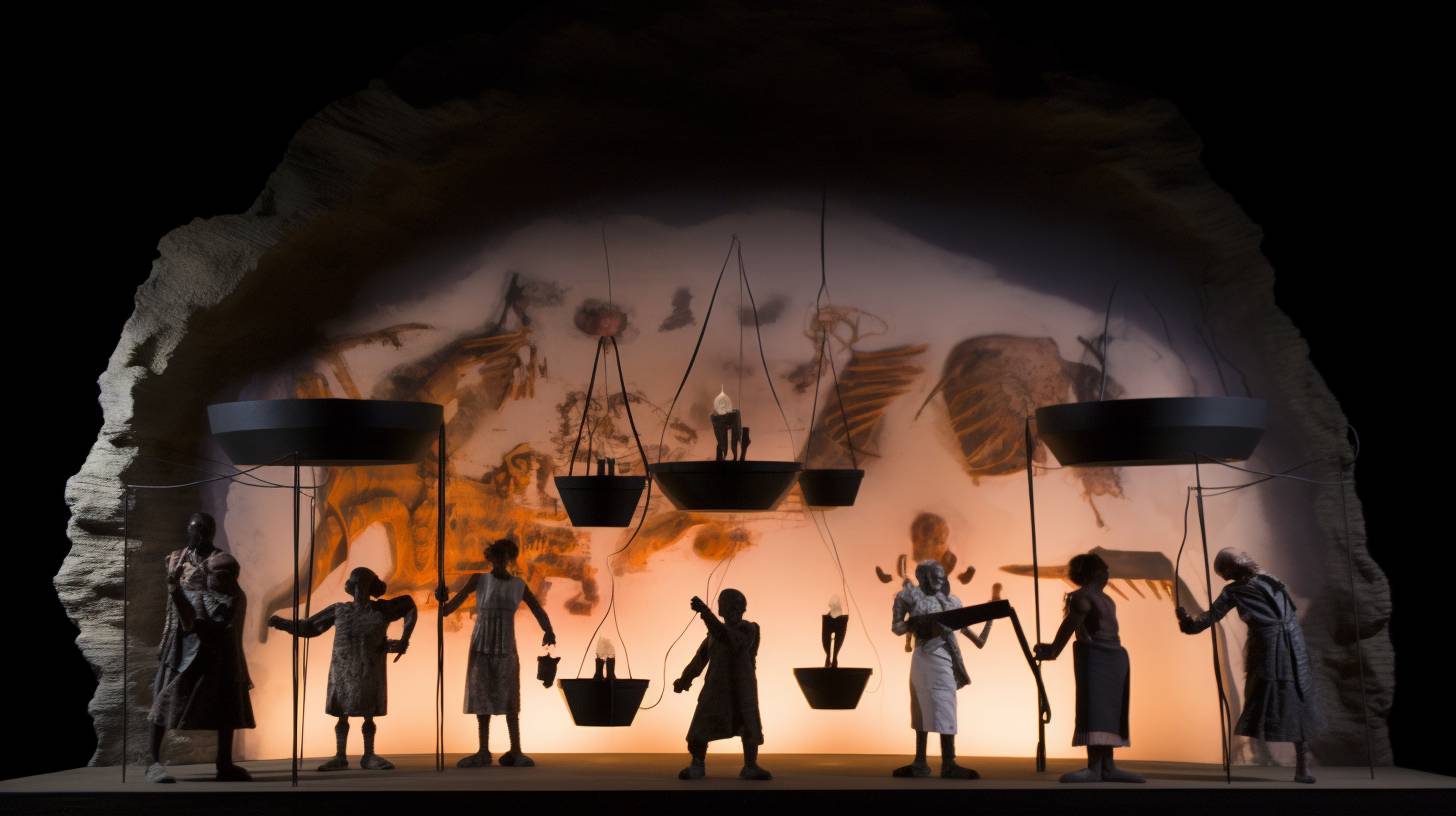
3. AI Undermines Personal Discovery
In Meno, Plato presents the idea of anamnesis, or recollection. He uses it to suggest that true knowledge is discovered within, and not externally granted. Socrates famously demonstrates this by guiding a slave boy to uncover geometric truths on his own:
“They say the soul of man is immortal, and at one time has an end, which is termed dying, and at another is born again, but never perishes… Having seen all things, whether in this world or in the world below, [the soul] has knowledge of them all.” (Meno 81c-d)
What happens when we rely on AI to provide knowledge instead of engaging with the struggle of learning?
Plato would warn us that true wisdom requires active discovery, reflection, and reasoning. Passive consumption of AI-generated answers lets AI “think” for us, and “learn” for us. If we are lazy thinkers, we risk losing the journey that makes us wise.
4. AI Can Be Used to Manipulate Rather Than Inform
Plato warns against the power of rhetoric in Gorgias, because rhetoric can persuade without leading to truth. GenAI, especially with its potential for deepfakes, misinformation, and persuasive chatbot-generated content, could be a modern example of this danger:
“The rhetorician need not know the truth about things; he has only to discover some way of persuading the ignorant that he has more knowledge than those who actually have it.” (Gorgias 459a-c)
The biggest risk of AI may not be its lack of wisdom, but its ability to sound wise.
I can imagine Plato cautioning us that AI can be used to manipulate beliefs and spread convincing falsehoods, just as skilled rhetoricians could lead people astray in ancient Athens. If we aren’t vigilant, we may find ourselves deceived by machines that appear insightful, but have no true understanding.
5. AI Lacks Moral Judgment
In Apology, Plato presents Socrates as a man who chooses truth and morality over convenience and safety. Socrates defends his lifelong pursuit of wisdom and ethical inquiry, even at the cost of his own life. He famously declares:
“The unexamined life is not worth living.” (Apology 38a)
AI, by contrast, does not examine life.
While AI can be programmed to reflect human ethics, it doesn’t understand them. Plato might say that relying on AI for decision-making could be dangerous, as it lacks the ability to reflect on justice, virtue, or the broader consequences of its outputs. If we aren’t careful, we might hand over moral authority to something that doesn’t even comprehend morality.
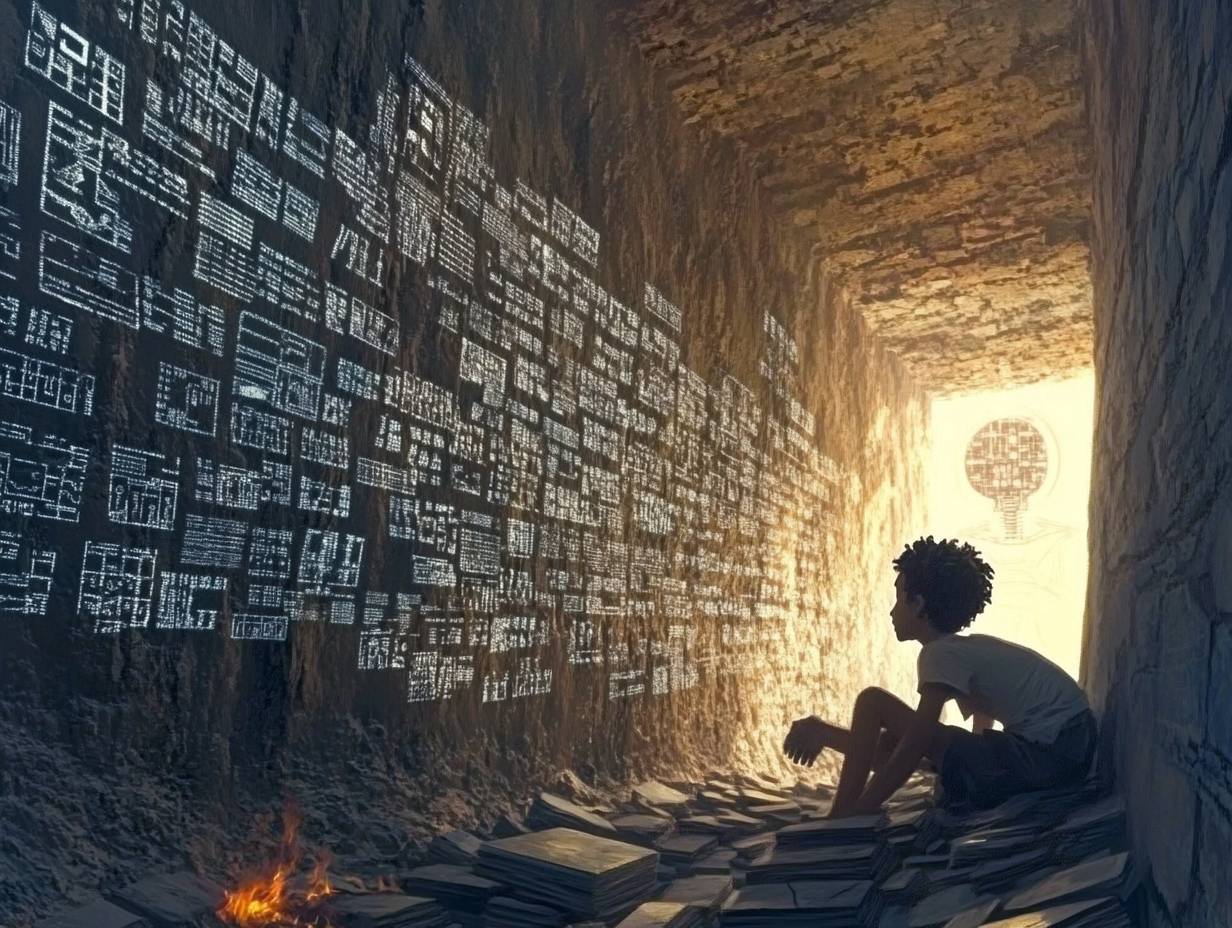
The Intersection of Technology and the Humanities
The ancient Greeks had a word for skilled craftsmanship: techne. More than just technical knowledge, techne was the mastery of a craft, blending skill and wisdom in the pursuit of excellence.
Athena, the goddess of wisdom and strategy, was often associated as the patron of techne—not just as an abstract ideal, but as a guide for applying knowledge with purpose and virtue.
If AI is merely a tool, it lacks techne, because it does not apply skill with wisdom or intention. It can generate, but it does not create in the way a true craftsperson does.
As Steve Jobs famously said:
“It is in Apple’s DNA that technology alone is not enough—it’s technology married with liberal arts, married with the humanities, that yields us the results that make our hearts sing.”
In the end, GenAI can be virtuous when it is used as a tool that augments human wisdom, but it can be villainous when it is merely a replacement for it.
The imagined critiques of Plato that I shared above all rely on AI replacing human thinking, which is not the right way to use it.
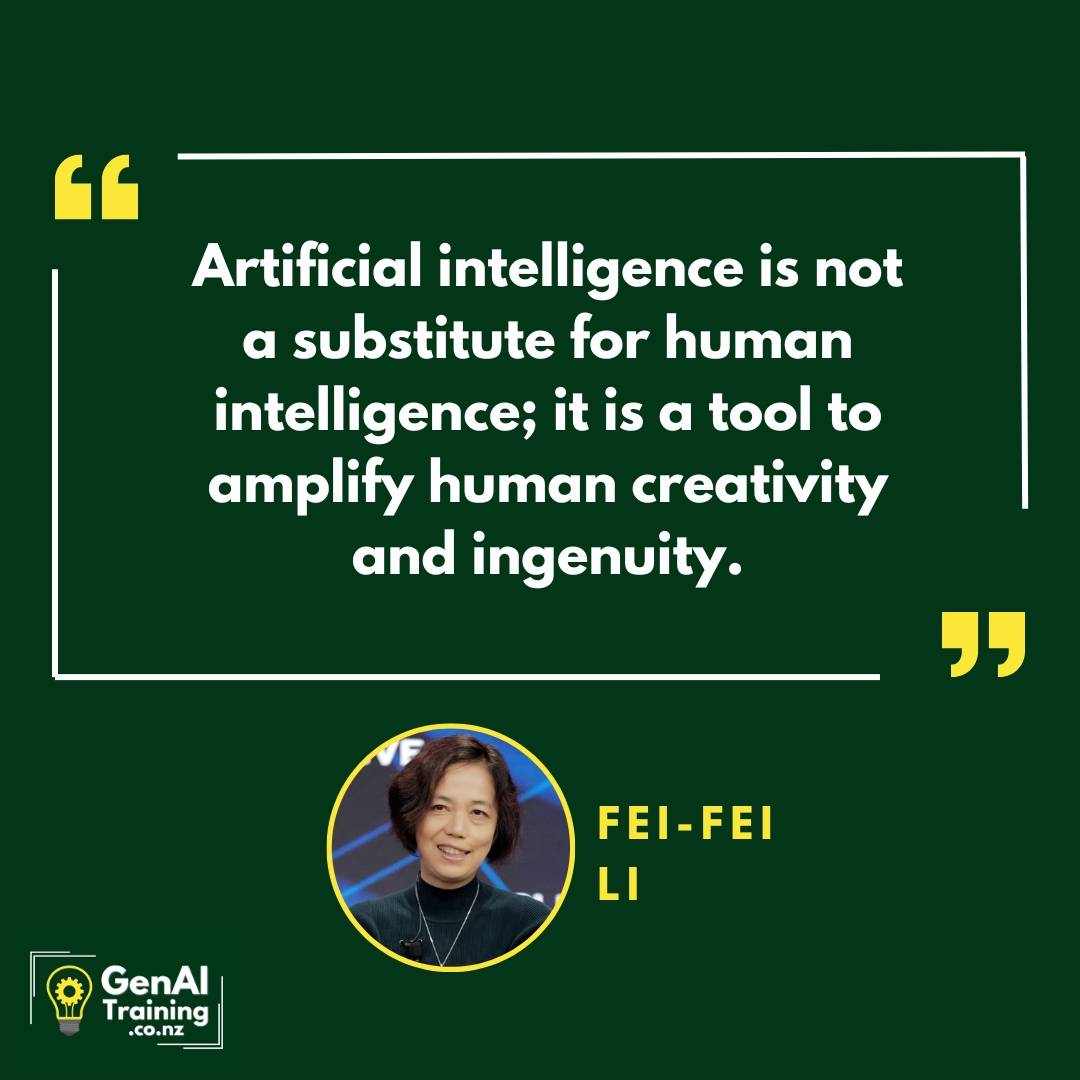
When we use AI as an amplifier, and not as a replacement, we sidestep the Platonic concerns I listed above.
Look, I’m not here to be a cheerleading advocate for GenAI. I won’t tell you that it’s great in all circumstances no matter w, no matter what. Just because it’s in my logo doesn’t mean I will always support it in every circumstance.
I pride myself on being a skeptical thinker. I like to try on the positions of my opponents, so I can understand why they think the way they do – and to be open-minded enough to change my own position, if it gets me closer to the truth.
So while most AI educators would ignore the concerns around Generative AI, I am willing to engage with these concerns directly, because I think it makes me a better teacher, and I know it makes me a better thinker.
If this article has made you think a little, and you have an interesting thought to share, I’d love to know. Reply or comment, especially if you think differently on this topic than I do.
🛠️ AI-Powered Art: Midjourney vs. Creative Authenticity
The intersection of art and AI has sparked profound discussions about creativity, authenticity, and the future of artistic expression.
In this video (4:16) I delve into:
- The role of AI in modern art
- Authenticity and ownership
- The future of creativity
⚙️ Announcing the Next Cohort
One of the AI-Powered Professionals in my new program couldn’t make it live, so he’s been watching the replays. He sent me this note:
“Wow, so much great stuff in there! The “list of lists” activity in Part 1 was brilliant—it had me brainstorming new ways to deploy GPT and identifying areas where I can lean into AI even more.
“I’m halfway through Part 2 now, and it’s jam-packed with practical prompts. The coaching and voice training frameworks are especially gold—I’ve already started adapting them for my own business. Seriously killer content. Thanks again for putting this together!”
I’m running another cohort in a few weeks, if you’d like to join us.

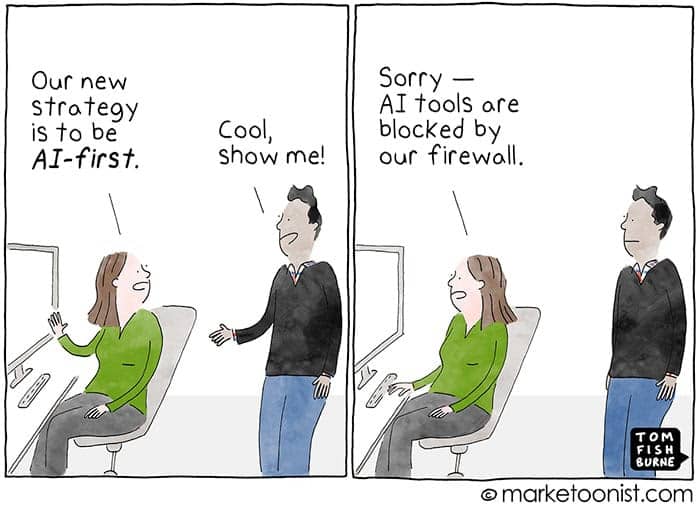
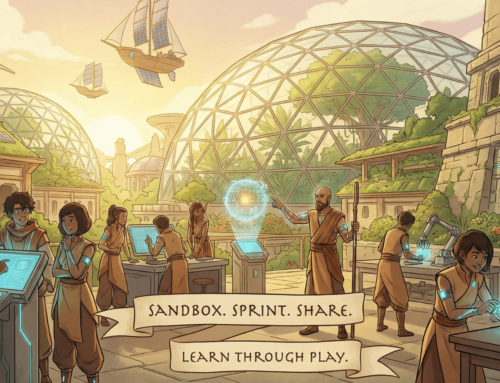

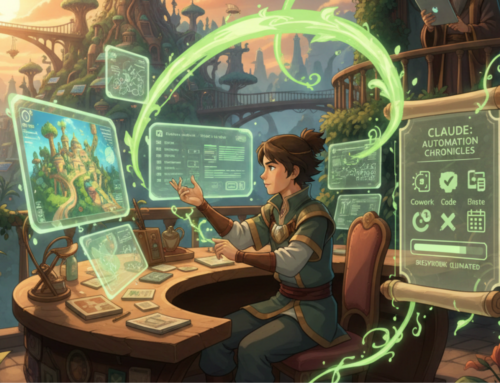
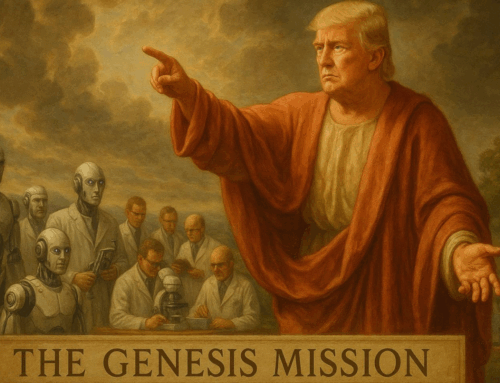

Leave A Comment